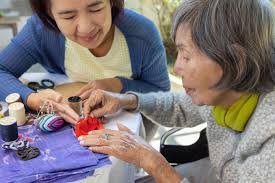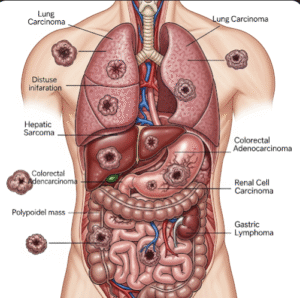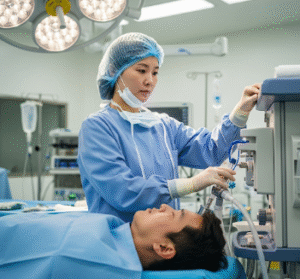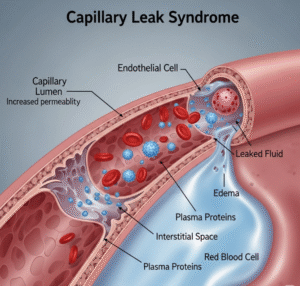Overview
Urinary urgency is the sudden, compelling need to urinate, often difficult to defer. It can occur in both men and women and may be accompanied by frequent urination, discomfort, or incontinence.
➤ Urinary urgency can be a temporary symptom from infection or excessive fluid intake or a chronic problem linked to bladder or neurological disorders.
➤ Common causes include urinary tract infections (UTIs), overactive bladder, interstitial cystitis, prostate enlargement, or neurological conditions.
➤ In Korea, advanced urology clinics offer diagnostic tests, minimally invasive treatments, and lifestyle interventions to manage urinary urgency effectively.
Key Facts
► Definition: Sudden, strong need to urinate that is difficult to delay.
► Prevalence: Common in adults, particularly older individuals and women.
► Associated symptoms: Frequent urination, nocturia (nighttime urination), incontinence, burning sensation, or pelvic discomfort.
► Risk factors: UTIs, bladder inflammation, enlarged prostate (benign prostatic hyperplasia), neurological disorders, caffeine or alcohol intake.
► Treatment in Korea: Combines medical therapy, lifestyle adjustments, behavioral therapy, and surgical interventions if needed.
What is Urinary Urgency?
Urinary urgency is a symptom of bladder dysfunction, indicating that the bladder muscles or nerves are overactive or irritated.
➔ Patients often report a sudden urge to urinate that cannot be postponed.
➔ It may be isolated or associated with other symptoms, such as frequency, incontinence, or burning.
➔ Chronic urinary urgency can disrupt sleep, work, and social life, impacting overall quality of life.
What Symptoms Are Related to Urinary Urgency?
Urinary urgency often occurs alongside other symptoms that provide clues to the underlying cause:
→ Frequent urination (more than 8 times a day).
→ Nocturia, waking multiple times at night to urinate.
→ Urgency incontinence, involuntary urine leakage when the urge is strong.
→ Burning or stinging sensation during urination (dysuria).
→ Lower abdominal or pelvic discomfort.
→ Blood in urine (hematuria), in some cases.
→ Fever or malaise, suggesting infection.
Causes / Possible Causes of Urinary Urgency
Urinary Tract Infections (UTIs)
➤ Bacterial infections of the bladder or urethra irritate the lining, causing frequent, urgent urination.
➤ Often associated with pain, burning, or cloudy urine.
Overactive Bladder (OAB)
➔ Condition in which bladder muscles contract involuntarily, producing urgency even with a partially full bladder.
➔ May also cause frequency, nocturia, and incontinence.
Interstitial Cystitis / Bladder Pain Syndrome
→ Chronic inflammation of the bladder wall causing urgency, pelvic pain, and discomfort during urination.
Prostate-Related Causes (Men)
► Benign prostatic hyperplasia (BPH) can compress the urethra, leading to urgency, frequency, and weak urine flow.
► Prostate infections (prostatitis) may also contribute.
Neurological Disorders
➤ Multiple sclerosis, Parkinson’s disease, or spinal cord injuries can disrupt bladder nerve signals, causing urgency.
Lifestyle and Dietary Factors
→ Excessive caffeine, alcohol, or artificial sweeteners can irritate the bladder.
→ High fluid intake may temporarily increase urgency.
Other Causes
► Medications with diuretic effects.
► Bladder stones or tumors irritating the bladder lining.
When Should I See My Doctor?
Seek medical attention if urinary urgency is accompanied by:
➤ Pain, burning, or blood during urination.
➤ Sudden worsening of symptoms without clear cause.
➤ Fever, chills, or general malaise, suggesting infection.
➤ Incontinence that interferes with daily activities or sleep.
➤ Persistent urgency lasting more than a few days without relief.
Early evaluation allows proper diagnosis and targeted treatment, preventing complications such as recurrent infections or kidney damage.
Care and Treatment
Self-Care and Lifestyle Adjustments
► Reduce intake of bladder irritants like caffeine, alcohol, and artificial sweeteners.
► Maintain adequate hydration, but avoid excessive fluids before bedtime.
► Practice bladder training, gradually extending the time between voiding.
► Pelvic floor exercises (Kegel exercises) to strengthen bladder control.
► Avoid holding urine for prolonged periods, which can worsen symptoms.
Medical Treatments
➔ Antibiotics for bacterial UTIs.
➔ Antimuscarinic medications for overactive bladder (oxybutynin, tolterodine).
➔ Beta-3 adrenergic agonists to relax bladder muscles.
➔ Alpha-blockers for men with prostate enlargement to improve urine flow.
➔ Pain management for interstitial cystitis or bladder irritation.
Advanced and Surgical Interventions
→ Botox injections into the bladder wall for severe overactive bladder.
→ Neuromodulation therapy (sacral nerve stimulation) for refractory cases.
→ Surgery for bladder outlet obstruction, stones, or tumors.
Treatment Options in Korea
South Korea is known for advanced urology care, combining diagnostics, minimally invasive procedures, and integrative therapies.
Diagnosis in Korea
➤ Urinalysis, urine culture, and blood tests.
➤ Imaging: Ultrasound, CT scan, or MRI for structural issues.
➤ Urodynamic studies to assess bladder function and nerve control.
Non-Surgical Care
► Personalized bladder training programs and lifestyle counseling.
► Medications tailored to bladder overactivity or infection.
► Pelvic floor physiotherapy to improve bladder control.
Surgical & Advanced Interventions
➔ Minimally invasive procedures for BPH or bladder outlet obstruction.
➔ Botox injections and neuromodulation for treatment-resistant urgency.
➔ Laser or endoscopic procedures for stones or tumors.
Rehabilitation and Lifestyle Support
→ Long-term follow-up for chronic bladder conditions.
→ Digital monitoring and telemedicine consultations to track symptoms.
→ Patient education programs to prevent recurrent infections and improve bladder health.
Korean hospitals combine cutting-edge technology, expert urologists, and integrative care, making them ideal for treating urinary urgency effectively.













